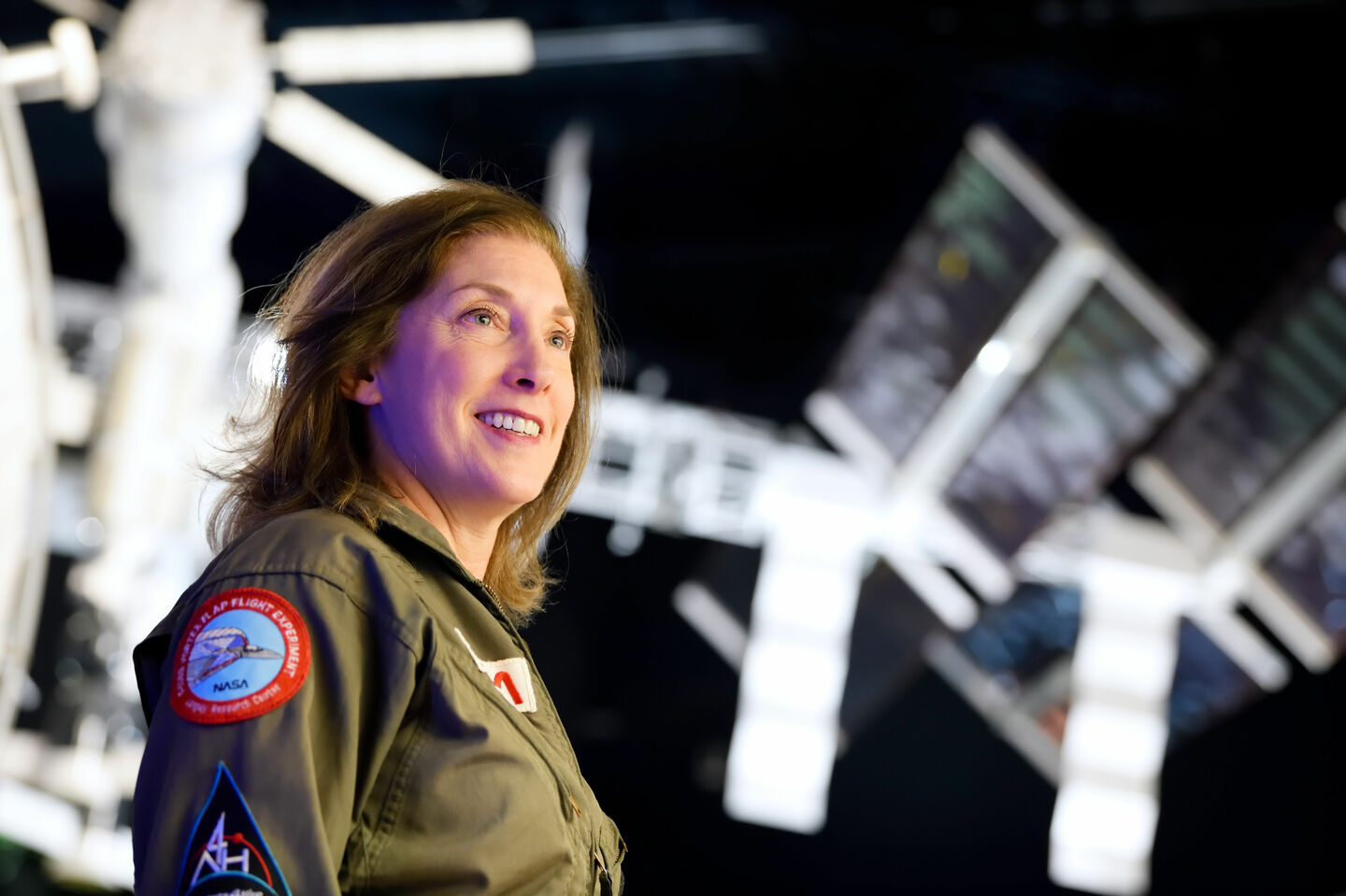
TU/e alumna to be first Dutch woman in space
Head over heels in love with TV astronaut Steve Austin, that was Mindy Howard as a six-year-old, dreaming of endless space missions, with him. As the years passed, her passion for her fictional hero, the main character in ‘The Six Million Dollar Man’, faded, but her dream of going into space never lost its allure. 2023 is expected to be the year of truth for this TU/e alumna; that’s when she will board a commercial flight into space - as an astronaut trainer and as the first Dutch woman in space.
Doing your very best and trying to be the best. "Yes, in that sense I suppose you could say I come from an ambitious family," says Howard. American by birth, she grew up with her parents and older sister in Long Island, New York, just outside Manhattan. Even then, she couldn’t sit still. She had her sports, music and an active social life.
From the age of four, she played the violin, somewhat reluctantly it has to be said: “I would have preferred the drums, but my mother put her foot down.” While she stopped playing aged seventeen and never felt a true affinity for it, she has always been grateful to the violin. “It taught me the importance of discipline. That with hard work, time and dedication, you can achieve success.” The drum kit came later, incidentally, when she turned forty. “It’s my midlife crisis instrument,” Howard laughs.
Back to New York where, after completing her primary and secondary education, Howard threw herself into an engineering program at the University at Buffalo. The first two years - providing a “serious technical basis” - she actively disliked, she admits, and on multiple occasions she nearly threw in the towel.
But she persevered. If only because she had to, for the sake of her girlhood dream: becoming an astronant. The unwitting instigator: Lee Majors, the actor who played the role of astronaut Steve Austin in the 1970s TV series ‘The Six Million Dollar Man’. “As a child I was totally smitten with him, wanted to go into space with him.” She remembers how as a six-year-old she would walk through a room in slow motion, supposedly weightless, taking steps on the moon. How she would climb into trees and ‘fly’ from them, “counting how long it took before I landed.”
Fantasy and play were as far as it went until she was close to graduating high school and was asked about her plans for the future. For the first time, she wondered if she had a real chance. “What do I have to do to become an astronaut?” It was soon clear that an engineering degree, preferably followed by doctoral research, really was the minimum requirement.
Science subjects had never been an obstacle for her, “getting good grades wasn’t the problem. But it certainly wasn’t where my passion lay”. So naturally, that “serious technical basis” at Buffalo wasn’t an aim in itself, rather an essential asset for the young Howard, who eventually specialized in the more human, psychological side: “Industrial Engineering became my happy medium”.
A woman with big dreams, but also very practical, pragmatic. Similarly, her decision to do her doctoral study in Eindhoven was driven by a sober sense of purpose. “In America a PhD can easily take ten years. That didn’t appeal to me at all; I was only ever planning to pass through the academic world, not to stay in it. In Europe, it takes four years on average to complete a PhD, or so I had heard - I liked the sound of that.”
In Eindhoven she could study for her doctorate in English and, what’s more, with assistent in opleiding (aio) status she would be paid a salary. She freely admits she knew nothing about this Brabant city until, with her application process almost complete, she came to the university for an interview with Theo Bemelmans, who later became her supervisor,. Her first impression was positive, but nonetheless her time in Eindhoven would be difficult, “especially the first two years. It was a huge adjustment, and there was the new language.” But Howard put her best foot forward, “‘Once you speak the language, you’ll have more friends,’ people assured me.”
In truth it wasn’t that easy. In Eindhoven Howard’s social life never really got off the ground as she would have liked and as she had experienced in America. “People tried to explain to me how it works here; for example, that colleagues don’t readily seek contact outside of work. But I found that hard to grasp; to start with, I thought of those of us doing PhDs as being one big group of students, but in the Netherlands they are fully-fledged employees. I was pretty lonely.”
She sought refuge in sport, including stints as a rugby player and an aerobics instructor in the Student Sports Centre. Unhappy? No, certainly not, she says emphatically. “I made the best of it and it formed me and made me stronger. But I missed having a support system like I’d had at home - and a quick app exchange or Facetime chat with family and friends in America wasn’t an option back then.”
Nor was she always on the same page as her professors at TU/e, she recalls. “I tried to forge my own path, wanted to do research on topics that I enjoyed. But that wasn’t always appreciated.” Her doctorate was awarded for research on support systems for group decisions: “How can you help groups in which all kinds of dynamics are going on make decisions assisted by technology?”
Not a hugely technical subject, Howard admits, “and seemingly simply when you look at today’s technologies”. But it meant she had that fervently desired qualification under her belt. “Immediately afterwards, I applied to NASA for the first time.” And she was relatively successful: in the selection procedure run by the American space agency she made it to the shortlist of (two hundred) ‘highly qualified astronaut candidates’, a list she would find herself on multiple times in the years that followed. And there, meeting all the requirements and within striking distance of the finish, she would fall, time and time again.
Still to this day, she sends applications to NASA. “But, of course, my chances are ever decreasing.” The astronaut program at NASA’s European little brother ESA, one of the main reasons she applied for Dutch citizenship in 1995, is a ship that has long since sailed. She is now fifty-four; unlike NASA, ESA applies a maximum age of 37 years.
Close, but no cigar. Yes, in the early years it certainly did feel a little like losing, says Howard, now married for many years to a Dutch man, and currently living in Zoetermeer. But in this situation too, her practical side won out; a living had to be earned. She joined Shell, where over a period of seventeen years she held various posts: from Human Factors Engineering Advisor to Senior Diversity Consultant and Senior Global Manager Sustainable Development.
A job here on Earth: second best? Only partly, says Howard. Because at Shell she was able - with enthusiasm - to steer her own course for the most part, largely in positions that hadn’t existed before. “It has often been this way in my life: when I thought the time was ripe for something, I would set about making it happen. I’d call people up: ‘I see you guys are doing research in this area, perhaps I can do such and such’. Actually, I have always found my way in by a back-door route and on my own initiative.” This American-Dutch citizen doesn’t seize chances - she prefers to create them herself.
She is proud of the mark she was able to make at Shell on the theme of diversity. Her initiatives included the women’s network and the network for the LGBT community within the oil company. But she is most proud of the very first boat that she managed to get on the canals of Amsterdam representing Shell, in 2006 and after four years of urging, during the annual Canal Pride. “Everyone at Shell felt it was too risky in terms of reputation; time and again I was told ‘no’ when I raised the matter. At some point I stopped asking and we just went ahead and did it.” It is a tactic that Howard likes to use whatever the situation: “When you ask, you give away a little of your power; ‘no’ is always a possibility”.
This TU/e alumna is a woman whose credo is ‘there’s nothing to lose’. And that proved the case when in 2011 due to a reorganization she had to leave Shell, and a career advisor asked her what she wanted to do more than anything else in the world. “Become an astronaut,” was Howard’s cut-and-dried answer. It was now or never. “Besides, I received a golden handshake of sorts from Shell, so I knew that I had the money to concentrate on my plans for a couple of years.”
That’s Plan, singular since she did not have an alternative that was even moderately appealing. “Otherwise I was going to get a job with another oil company doing the same work I’d been doing in my last job as sustainability manager at Shell.” In recent years she had held two other positions, with Saudi Aramco (Saudi Arabia’s state oil company) and with AEGON - as she herself says, with varying degrees of success.
But, in fact, since 2012 she has been primarily occupied with her own company, Inner Space Training - according to Howard “the first and only psychological space travel training program in the world,” which is currently targeting commercial space travel. A business of which she was initially critical. “During my own astronaut training I was tossed about in a centrifuge, I have been through the mill for the sake of my dream. These people are paying a quarter of a million dollars for ninety minutes in space, and aside from the money very little is required of them. To my mind, it was a little like cheating; and I found it unfair that this kind of space trip was only available to the very rich.”
Over the years, she has relaxed her opinion. “Many people dream of going into space; if you have the chance - and the money - you should seize it.” Personally, she now finds herself in the fortunate position of not having to dig deep. In fact, the reverse is true. She is actually being paid to go into space: in the fall of 2023, it is expected, as the mental coach of a group of commercial astronauts on their first - and for the majority their once in a lifetime - space trip.
Create your own opportunities - here it is again. Triggered on this occasion by her own earlier astronaut training when she had seen how squarely the focus lay on the physical aspect; she had seen others engaged in struggles with both themselves and extreme conditions in various situations, including the infamous centrifuge in which prospective space travellers are exposed to the pressure of increasing g-forces. “I felt there was a gap in the market: mental guidance for astronauts pre-flight.”
With the very first commercial space flight with paying passengers still a future prospect, the enthusiastic Howard can at times become impatient; it won’t be until a definite date is announced that prospective passengers will start to think seriously about their preparation, she thinks. Moreover, the big commercial players, like Virgin Galactic and Blue Origin, are paying relatively little attention, she says, to the mental aspect of a flight like this. “It is more likely to be seen as a ‘nice to have’.” Similarly, the major space operators were, she says, only “mildly interested” in her training, which she has spiritedly tried to bring to market.
When you are paying a quarter of a million dollars for this kind of journey into space, surely you want to get the most out of it?
She argues her case: “You are paying a quarter of a million dollars for a journey like this, which you cannot repeat. Surely you want to do everything you can to get the most out of the experiernce? Surely you don’t want the journey to be your practice run, with the risk of all kinds of incidents happening, caused by yourself or by others? Without good preparation you can bet your bottom dollar these incidents will occur.”
She has tried to approach a couple of the lucky few, those individuals who are known to be holding a ticket to space. They tend to be world-famous stars, the Angelina Jolies and Brad Pitts of this world, “and they are hard to reach; they have a whole crew of people around them to filter their mail.”
Thus this direct route to wealthy space travellers-to-be wasn’t a great success, but she is now working with the British company Blue Abyss, which calls itself the world’s first commercial space travel training centre. “They wanted to offer various types of training, but didn’t yet have any mental training. Now I’m going to be doing that for them. It will be a one-stop shop, for which they recruit the customers.”
One of the projects Howard will be supervising under this umbrella is Career Astronauts: a worldwide competition culminating in four lucky winners who will soon be able to join a commercial space flight. The organizers got in touch with Howard after her TED Talk, which after some hesitation she gave two years ago. “Many people said, ‘You have to tell people who you are and what you do’.”
The final number of likes on YouTube may not have been impressive but the video did bring her to the attention of the CEO of AdvancingX, the company behind the Career Astronauts competition. “He asked me, ‘Do you want to become our astronaut trainer and coach, and accompany these people into space? I thought, ‘Where’s the hidden camera?’ So even at this late stage I’ll be going into space. Not in an André Kuipers-like way, but hey - that is how the universe can sometimes surprise you. And how things even at such a late stage can become possibilities if you are patient, remain true to yourself and to your dream.”
Expectations are that her dream will come true in the fall of 2023; that’s when Howard will be going into space - as the first Dutch woman ever, no less. That her long-dreamed-of debut will be in the service of others, doesn’t bother her. “But secretly, I am hoping, of course, that I’ll have trained these people so well that I can enjoy my own experience too.” She adds, laughing, “That is my hidden agenda.”
More than this, she hopes that her first trip into space in 2023 will be her stepping stone to spending more time in space, to fulfilling “an even crazier dream. Ultimately, I want to become an innkeeper of sorts in space, to manage a space hotel, where people can spend a little time, say a week, indulging in being astronauts.” Space aerobics, space yoga; the enthusiastic Howard can already see the activities program. Some people say she’s mad, “but we already have the technology to run just such a space hotel. However, people do have to be able to actually get there, and that is the bigger challenge. Still, even that will be brought another step close once these commercial flights get going.”
When pressed to suggest a timeline, which she does somewhat reluctantly: “I would say in five, six years’ time”. She laughs and continues, “By then I’ll be sixty. My main aim and number one concern in life is to stay fit and healthy, so that I really do get to experience everything I’ve always dreamed of. The idea that my age could be what stands in my way makes me a little nervous.”
This is essentially the message she tries to give people generally in her work as a trainer: pursue your dreams, regardless of any limitations you may have and the watershed moments in life that can knock you off balance. This is also one of the themes in Blast Off! Train like an astronaut for success on earth, a book that she recently published, in which she translates her preparatory mental training for astronauts for use here on Earth. “The biggest limitations are often those in your head. In my book, I offer techniques to overcome these things and stop them from discouraging you.”
She is keen to share her experience and techniques as widely as possible - including at her alma mater in Eindhoven. Midway through December she will renew her acquaintance with the campus when she comes to talk to various people about the possibilities. Women in science and technology are especially high on her list: “When a woman engineer starts work somewhere, everyone is enthusiastic - but within three to five years many of them leave, completely discouraged, because they feel neither involved nor valued. I want to help women deal with this kind of experience.”
The much-discussed ‘women policy’ that TU/e introduced last July is something this Dutch-American woman very much welcomes since all the targets, quota and ‘fair’ softer measures - which she also saw at Shell - aren’t doing the job. “They have very little impact on the figures. So more forceful intervention becomes appropriate. And perhaps once in a while we need to appoint a woman who doesn’t hit the deck running but can learn on the job. It’s not a quick solution, but eventually this approach will give you a critical mass of women in your organization who can ensure, by working on selection committees, for example, that enough women can continue to break into the scientific elite. And then the organization can resume, with as much impartiality as possible, its former recruitment approaches.”

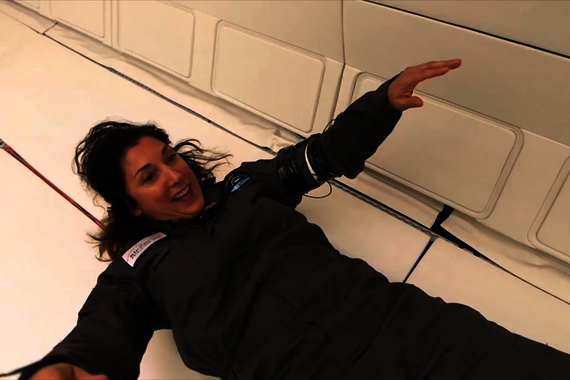
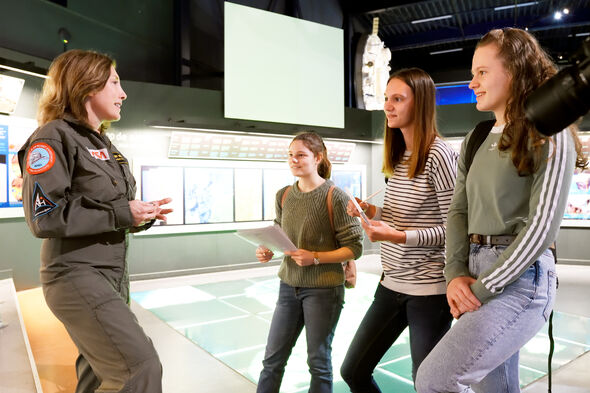
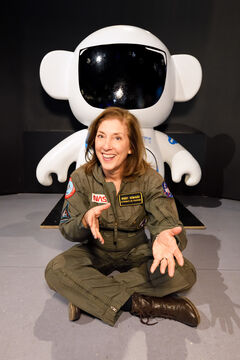
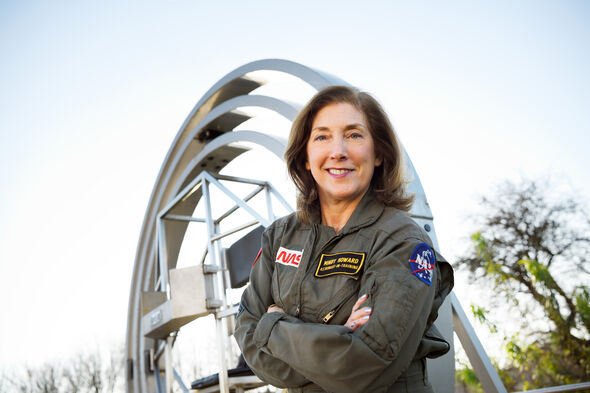
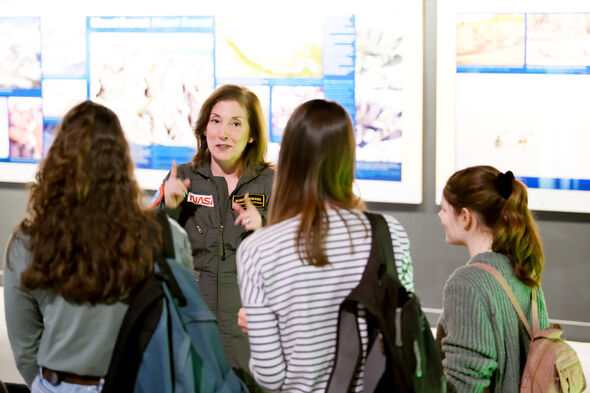
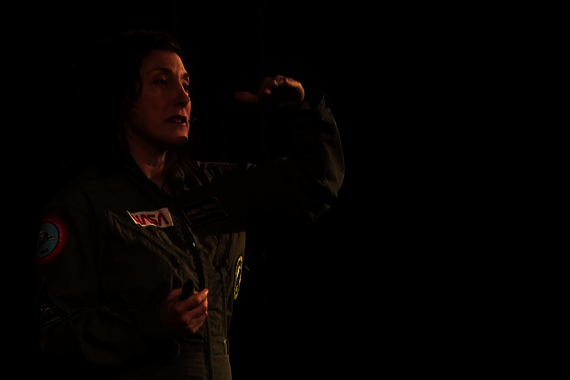
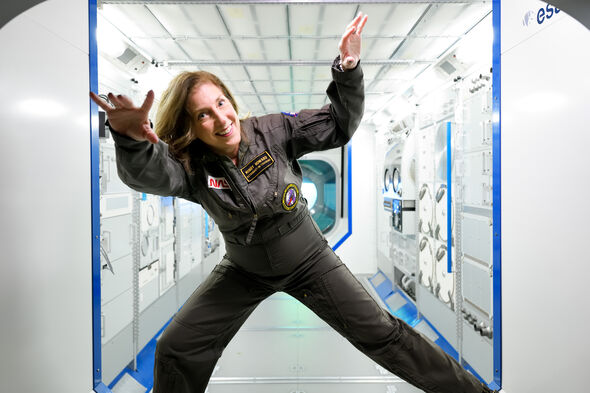
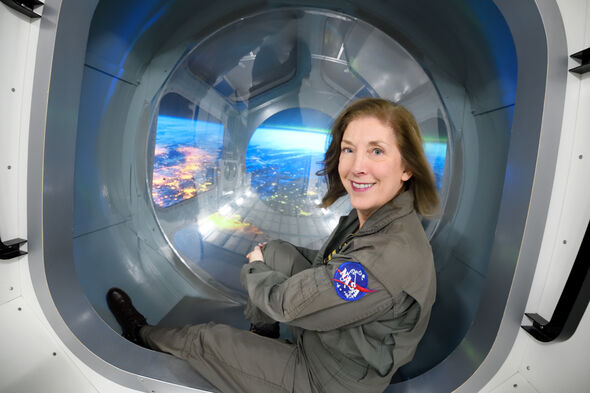
Discussion